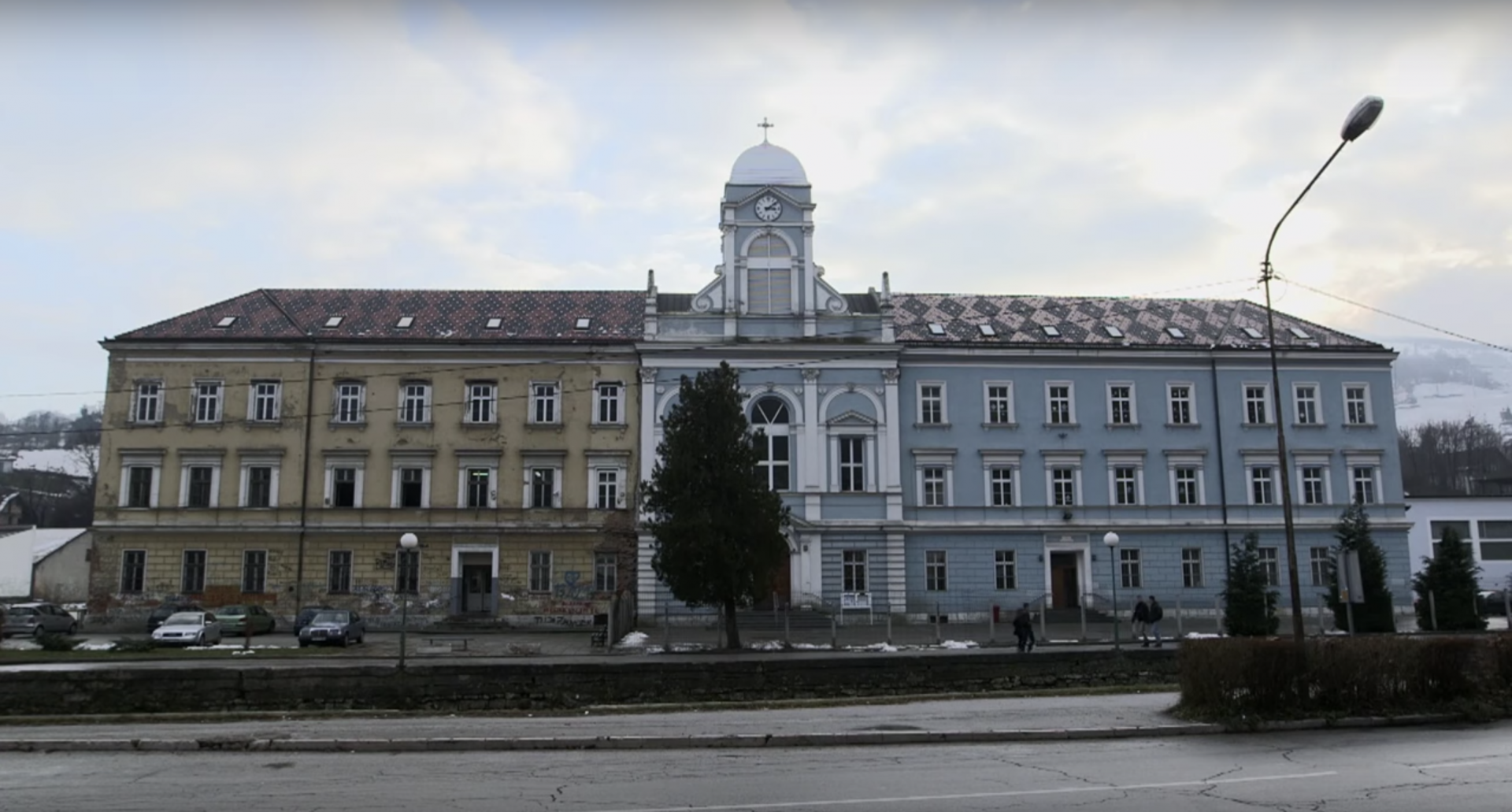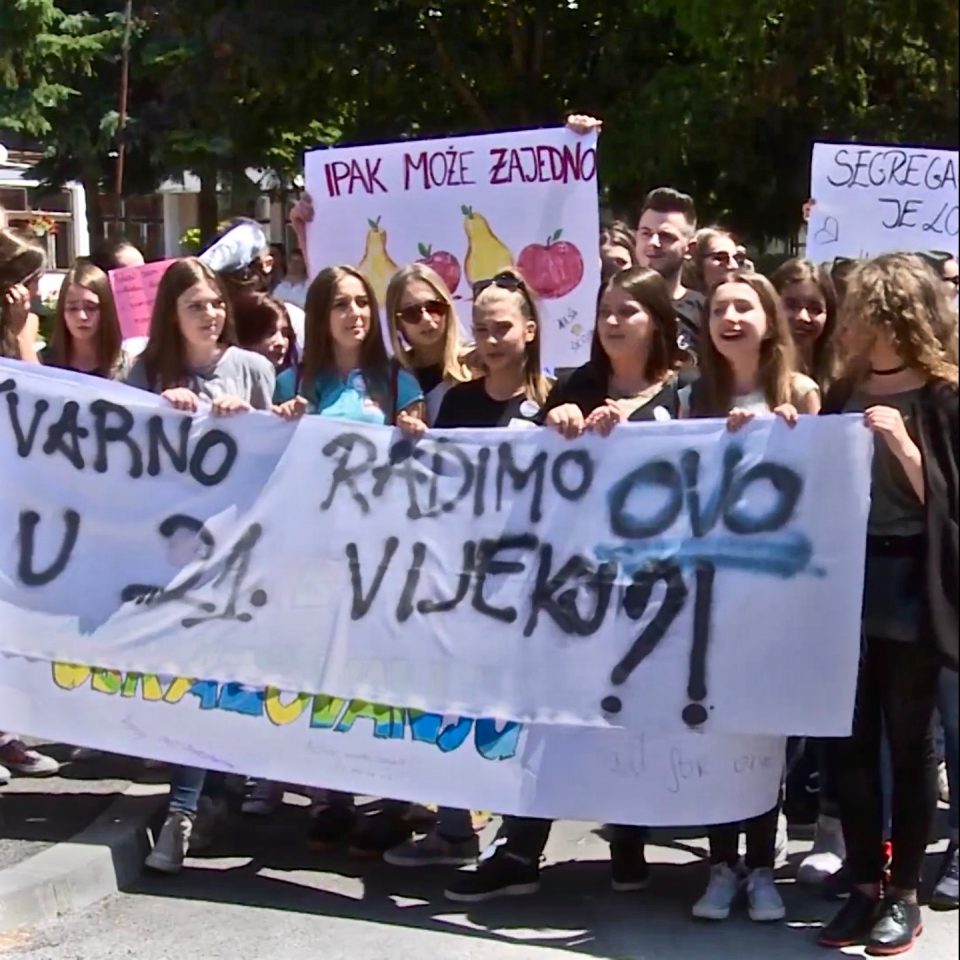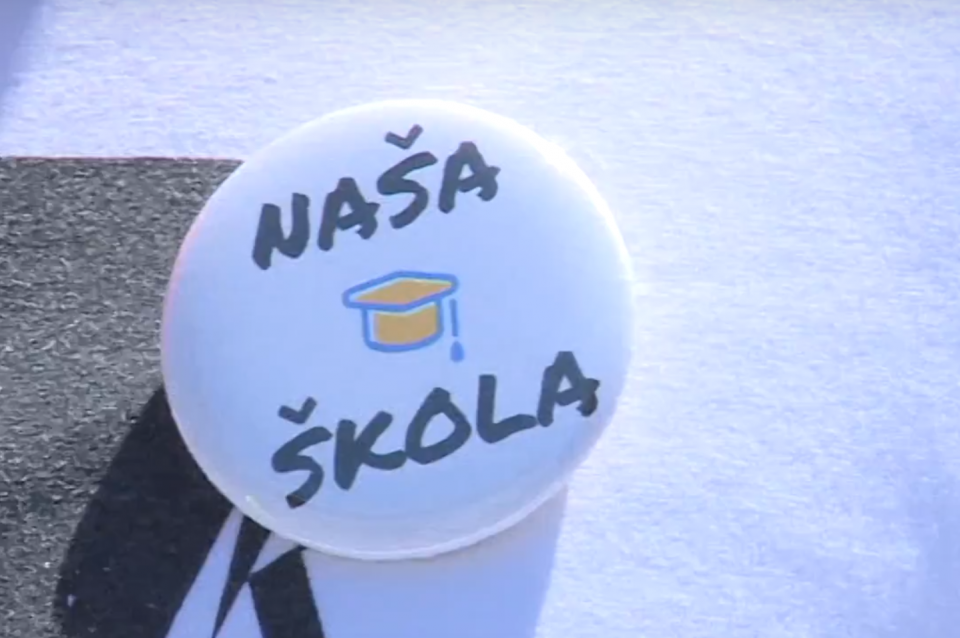
The authorities did not take them seriously, but the youths’ persistence and courage, along with public pressure, resulted in the revocation of the decision to further segregate schools in Jajce.
The cantonal assembly of the Central Bosnia Canton tried to erect another school under the Two Schools under One Roof system in July 2016. This was heavily opposed by a group of Jajce teens who recognized this as an act of segregation and who began to protest against this decision. The authorities did not take them seriously, but the youths’ persistence and courage, along with public pressure, resulted in the revocation of the decision to further segregate schools in Jajce. Now, more than two years on, these young heroes continue to fight against the system and have received significant recognition and support for their hard work.
Bosnia and Herzegovina’s educational system is a direct reflection of the country’s current post-war division. While schools in the Republika Srpska (RS) remain predominantly mono-ethnic, the Federation of Bosnia and Herzegovina (FBiH) has 56 schools that operate under the “Two Schools Under One Roof” system.
“Two Schools Under One Roof” was created as a temporary solution to encourage the return of displaced citizens to their homes and as a systematic protection of their rights on a cultural and linguistic level. Nevertheless, these schools operate across the FBiH to this day, heavily concentrated in cantons that have had the highest number of returnees. The reports of international and domestic organizations say that this educational model further contributes to segregation and discrimination.
For years, there has been an on-going debate on why this system is still in place. The Organization for Security and Co-operation in Europe’s (OSCE) educational sector representatives stated that a lack of political willpower to resolve this issue is one of the main factors. Criticism from international organizations has not stopped the Bosnian authorities from supporting the further division of high schools in Jajce, which are currently functioning under the Croatian curriculum.
Instead of segregating the schools to house two mono-ethnic sets of curriculum, a group of young activists from Jajce requested that students still be able to attend all classes together with the exception of the so-called “national” subjects such as language, religion, geography, and history.
Jajce’s group of student activists all agreed that the system does need to be restructured but dividing existing schools further would certainly not lead to positive changes. The compromise to accept some separate curricula, they concluded, is not an ideal solution but it’s better than complete segregation.

Fear and indifference permeate the community, as is often the case in post-conflict societies, and the group that stood up against the decision for further segregation received little public support during their protests.
“We did have some support, some people did encourage us to continue fighting, but when it came to tangible and strategic help, everyone remained silent and that’s where the problem lies,” stated Ivica who was one of the students that started the protests.
“My parents support our work,” Ivica’s colleague Ajla added. She also explained how many others didn’t support such activities.
The student protesters had attended several meetings with OSCE BiH representatives who had offered their support to organize a public debate as well as to help the young activists with further planning. These young people were beginning to recognize the power of speaking out.
“These schools have been built for us. They will remain as they are, because we demand it,” Nikolas, a Jajce high school student, explained.
The debate to further segregate the schools has shifted the focus away from the actual problems of both the quality of the educational system and the state of the physical buildings that students spend their time in. “It would be way more useful to fix the broken windows and to foster a more positive environment in our classrooms. Shame on them,” said Ajla.

Katica Čerkez, the Central Bosnia Canton’s Minister of Education, Science, Culture and Sports, publicly stated that Two Schools Under One Roof is not a phenomenon but an implementation of Annex 7 of the Dayton Accords. She explained how the current dissatisfaction in Jajce is rooted in Croats’ fear of losing their language and culture after another school with Bosnian-based curriculum is created.
Ajla, Nikolas, and Ivica responded by saying that regardless of whether this statement is true or not, the group’s activism is free from any political influence. The group consists of young people eager to stop the ethnic divisions.
Many doubted that the fight of these high school students from Jajce would succeed but they did, indeed, win. The resolution was scrapped and the cantonal government has given up on full segregation.
A national group of subjects was introduced with the start of the new school year and, thanks to this fight, the students continued to attend most classes together.
“I hope the entire region will come to realize that these divisions won’t lead us anywhere. Why do children have to live this way? What have we, or the future generations, done to deserve this?” asked Nikolas.
“These schools are ours and we have the full right to reject segregation,” stated Ivica
Winning this battle has only inspired them to continue their activism. Ignored by the politicians and the local community alike, these young activists took matters into their own hands, spoke out, and made a difference. Now, aware of their strength and the power of their voice, they serve as a reminder to the younger generations of their power to influence Bosnia and Herzegovina’s path towards true reconciliation.
This publication has been selected as part of the Srđan Aleksić Youth Competition, a regional storytelling competition that challenges youth to actively engage with their own communities to discover, document, and share stories of moral courage, interethnic cooperation, and positive social change. The competition is a primary component of the Post-Conflict Research Center’s award-winning Ordinary Heroes Peacebuilding Program, which utilizes international stories of rescuer behavior and moral courage to promote interethnic understanding and peace among the citizens of the Western Balkans.
The Balkan Diskurs Youth Correspondent Program is made possible by funding from the Robert Bosch Stiftung and the National Endowment for Democracy (NED).







